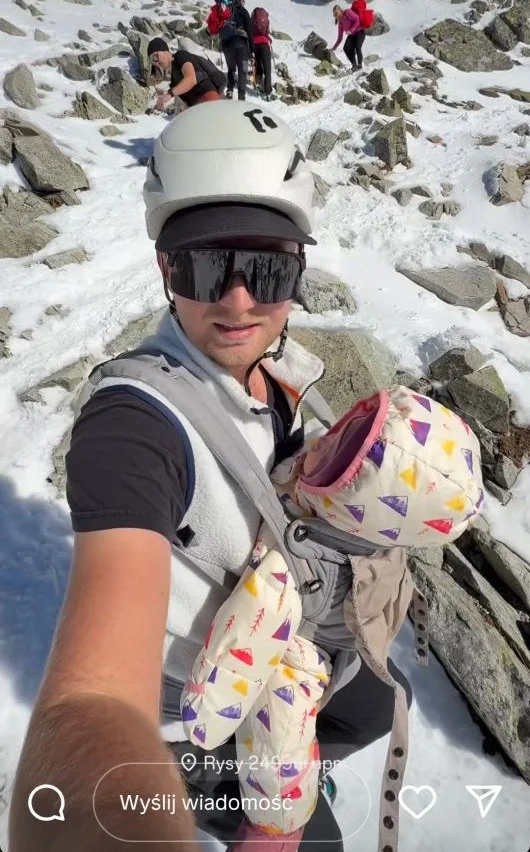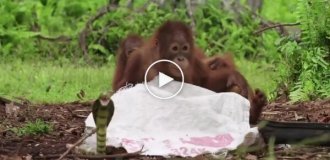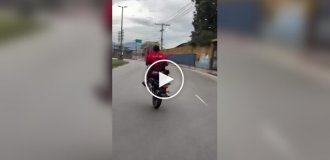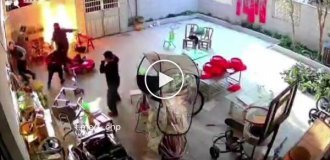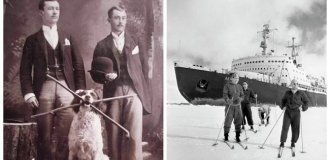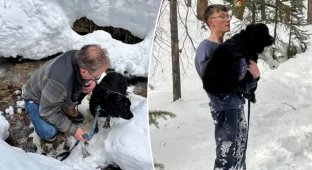A married couple climbed the highest mountain in Poland with a baby (3 photos + 1 video)
Poles and Slovaks were horrified when they saw what a Lithuanian couple was doing. They were climbing to the summit with a nine-month-old baby, completely oblivious to the dangerous conditions in the mountains. 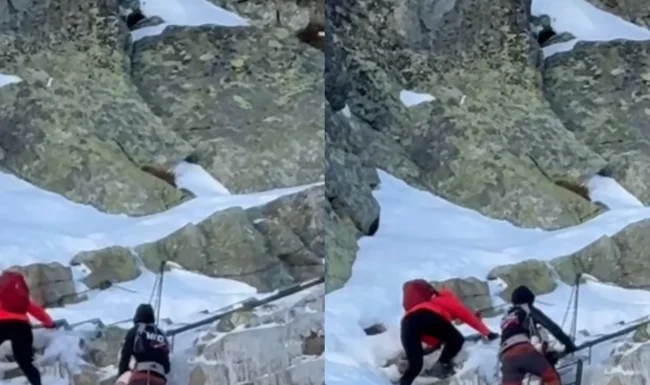
According to eyewitnesses and tour guide Szymon Stoch, a group of Lithuanian tourists were attempting to climb Mount Rysy (2,499 m), the highest peak in Poland. Among them was a couple with a nine-month-old baby. The climbing conditions were extremely challenging: hard snow, icy conditions, and a high risk of landslides.
Several professionals—licensed guides, members of the Slovak Mountain Rescue Service (HZS), and staff from the Chata pod Rysmi hut—tried to warn the Lithuanian group and explain the risks they faced. However, the baby's parents ignored the warnings and continued climbing.
Miracle-wise, they managed to reach the summit. However, when it was time to descend, the baby's father realized the danger and even tried to borrow crampons from the guide. When the couple was offered the chance to contact rescuers, she refused because they didn't have insurance—it turned out they valued money over safety.
Ultimately, the guide took the baby from the couple and carried him to safety. "Fortunately, no one was injured – and this is entirely due to the bravery and professionalism of the guide," the media reported.
Journalists noted that this story sparked a storm of outrage in Poland and Slovakia: "This raises questions about parental responsibility, mountain safety, and respect for a child's life in extreme conditions."
A video of the couple's ascent was shared on Facebook. The outrage of the Poles can also be seen.
"Speechless," wrote the author of the message.
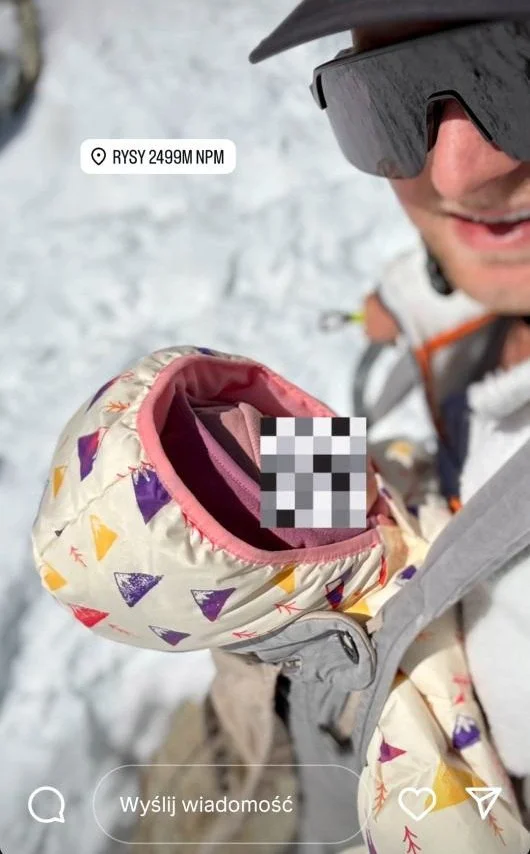
After the article was published, the family in question contacted the portal. They insist that everything was not as described by the Poles. We present the letter written by them.
"We are the parents being written about in the media and on social media. The situation described is distorted and doesn't reflect the facts. We are shocked that someone is drawing attention to this by distorting the facts and spreading false information."
My wife and I have been hiking and mountaineering for many years, including via ferrata routes. We have climbed many peaks with our child—in Montenegro, in the High Tatras. This wasn't our first hike in the Tatras.
We set out that day, well prepared, like hundreds of others. We overtook many of them. Halfway up, we met guide Szymon Stoch, who informed us about the road ahead—nothing special, we'd climbed mountains in similar conditions before. On the descent, other hikers confirmed the road was good. We reached the summit without any problems, like most. We had the same equipment as everyone else, including a 77-year-old man.
At the summit, we met Szymon Stoch again, who asked how we were doing. He volunteered to carry our child a short distance—a few hundred meters—over a steep, snowy section. We didn't ask him for help. We accepted his offer, as his boots were better suited for the slope. Then we took the child from him and descended on our own—like hundreds of other people with similar equipment.
It should be noted that while the guide was carrying our child, he stopped to take a selfie (one of them later appeared under the Tatromaniak post). We believe this was the most irresponsible moment in this situation—blatant self-promotion, not safety.
It's also incorrect to say that we didn't have insurance. This is a lie. We always have insurance; we understand the dangers of the mountains. We're not talking about insurance. The guide didn't say anything.
We are shocked that some people are distorting the situation and sensationalizing a family hike to improve their image.
We have already contacted the person who spread the slander and demanded that it be retracted.
When we climb mountains, we always assess the situation and never take risks. We climbed other peaks that weekend. We have enough experience to know when to turn back.
Every family has its own experiences and limits – what works for one may not always work for another.
